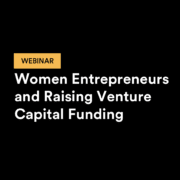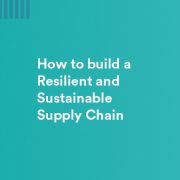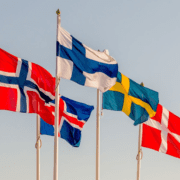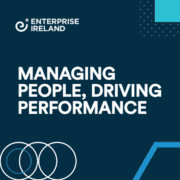T-Pro: creating accurate speech models for its transcription services
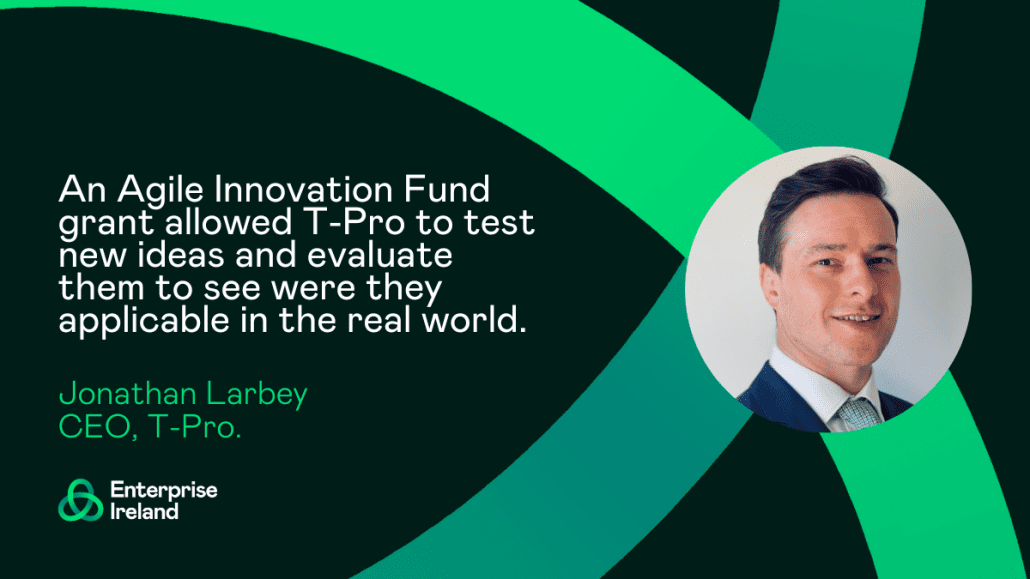
An Agile Innovation Fund grant allowed T-Pro to test new ideas and evaluate them to see were they applicable in the real world.
Bringing ideas from theory to real-world application is a risk. T-Pro wanted to investigate some new techniques that existed only in academic journals, and the Agile Innovation Fund provided the resources to take a chance and the opportunity to grow and improve the company’s offerings.
Jonathan Larbey is CEO and one of the founders of T-Pro. The company provides document workflow solutions and clinic management software to healthcare organisations, including speech technology. The company’s range of clients is wide, from small clinics all the way up to hospital groups, NHS Trusts, and regional healthcare organisations.
The project that the company received the Agile Innovation Fund grant for was in the area of speech recognition and natural language understanding, which was quite academic, as Jonathan explains: “It’s published in industry journals and things like that, or comes out of universities. It’s not stuff that’s used in the real world. While these things can be academically viable, there’s no real-world use cases for them. This is very much a leading edge, state of the art development piece of work”.
But it was worth the investigation, as the project allowed T-Pro to develop very scalable, very accurate speech models that encompass different dialects and speaker characteristics. Through this project, the company developed a global English model for transcription for medical use, which caters for any kind of English accent. This means you don’t need to have a different one for Australia, Ireland, UK, USA, etc.
Bringing in new people
One of the benefits of the Agile funding was the company was able to bring in two additional members of staff to its machine learning, speech and natural language processing (NLP) team.
The Agile Innovation Fund provides an accessible and interest-free form of funding, but it also saves companies time, says Jonathan: “A lot of companies, whether they’re a start-up or a growth company, would spend loads of time raising infinite rounds of very expensive equity funding, or maybe run a debt process and have to sit down with banks and get them comfortable with numbers and all of the projects. Whereas this is a much more accessible route to funding. And it’s something that people don’t make most use of I wouldn’t have thought”.
Jonathan recommends getting to know the grants process, and looking at this type of grant as a way of funding these types of projects, rather than going out and raising expensive money.
Grants process makes you analyse your idea
He praises the application process for the Agile Innovation Fund: “It makes you really think about a project, plan it properly, put manners on something, and put a scope together rather than having a bit of ideation that you try and follow through for. You have to have a beginning and an end. You have to have stuff that’s in scope. You have to have costed it all. So you have to understand how much it’s going to cost you and you have to have outcomes, which obviously are beneficial. You can tie a lot of the R&D stuff then back to commercial use cases and you can really look at it and make business decisions around that piece”.
Support from Enterprise Ireland
T-Pro got support from its development advisors within Enterprise Ireland. The company was able to submit drafts, and get feedback from its advisors, who asked leading and probing questions that made the company think about the project from all angles, as Jonathan explains: “Obviously, they’ve done a lot of these, they’ve dealt with a lot of companies, they know what the pitfalls are. It was good. It was really beneficial from a business point of view, to even just go through the process of doing the application”.
Enterprise Ireland was supportive throughout the process, he says: “If companies are engaging with them, then you should really lean into it. Because if you have a development advisor that understands your business strategy, and you have a well-formed plan, then it’s not just an individual one innovation grant. There are various supports that all play into each other. You might do a bit of R&D through an Agile Innovation grant and that will lead you on to market entry, because the outcomes are all subsequent, and it brings you through a business plan”
The funding was beneficial in terms of positioning also, says Jonathan. Outside of sales, the company is recognised as an industry leader now. It’s helped T-Pro position itself within both the academic community and the wider healthcare technology community as a leading light. That has benefits in terms of making it easier to generate marketing/PR material, recruit staff and and talent. Jonathan says the grant has been very beneficial for T-Pro.

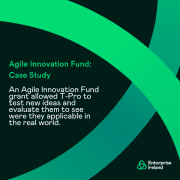
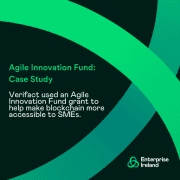
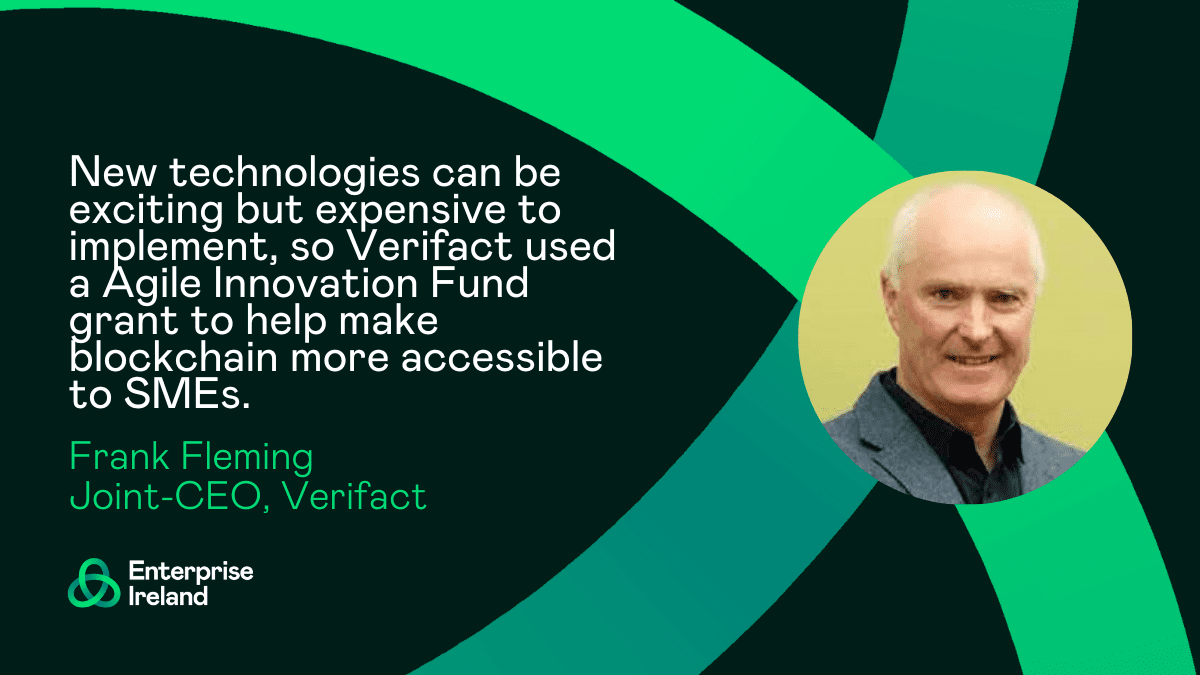

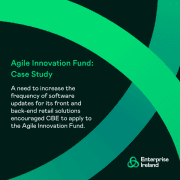
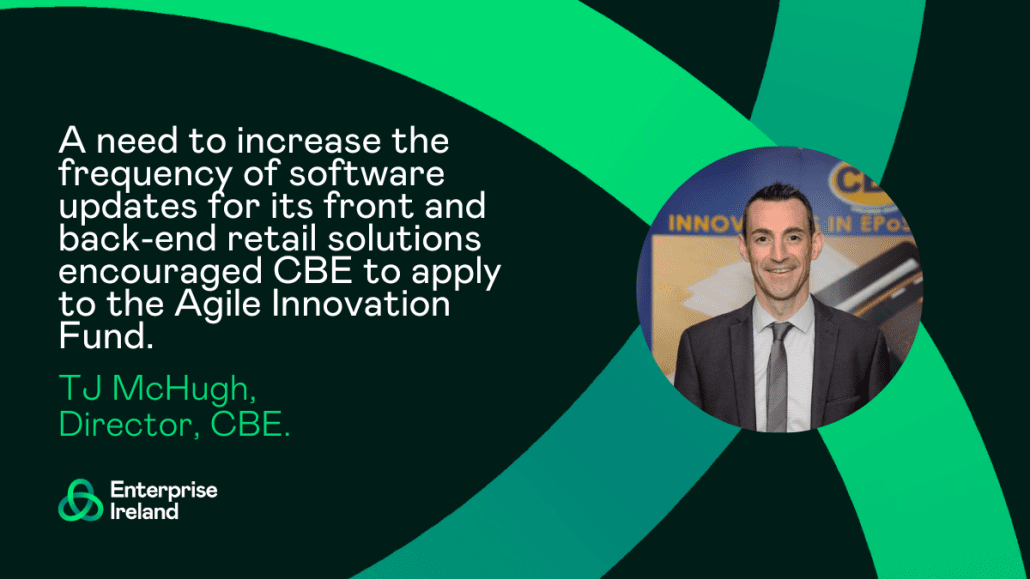




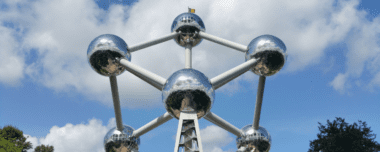





 Amidst the evolving trading relationship with the UK, agile Irish businesses have maintained a positive outlook on the market and taken proactive measures to mitigate the impact of Brexit on their operations.
Amidst the evolving trading relationship with the UK, agile Irish businesses have maintained a positive outlook on the market and taken proactive measures to mitigate the impact of Brexit on their operations.